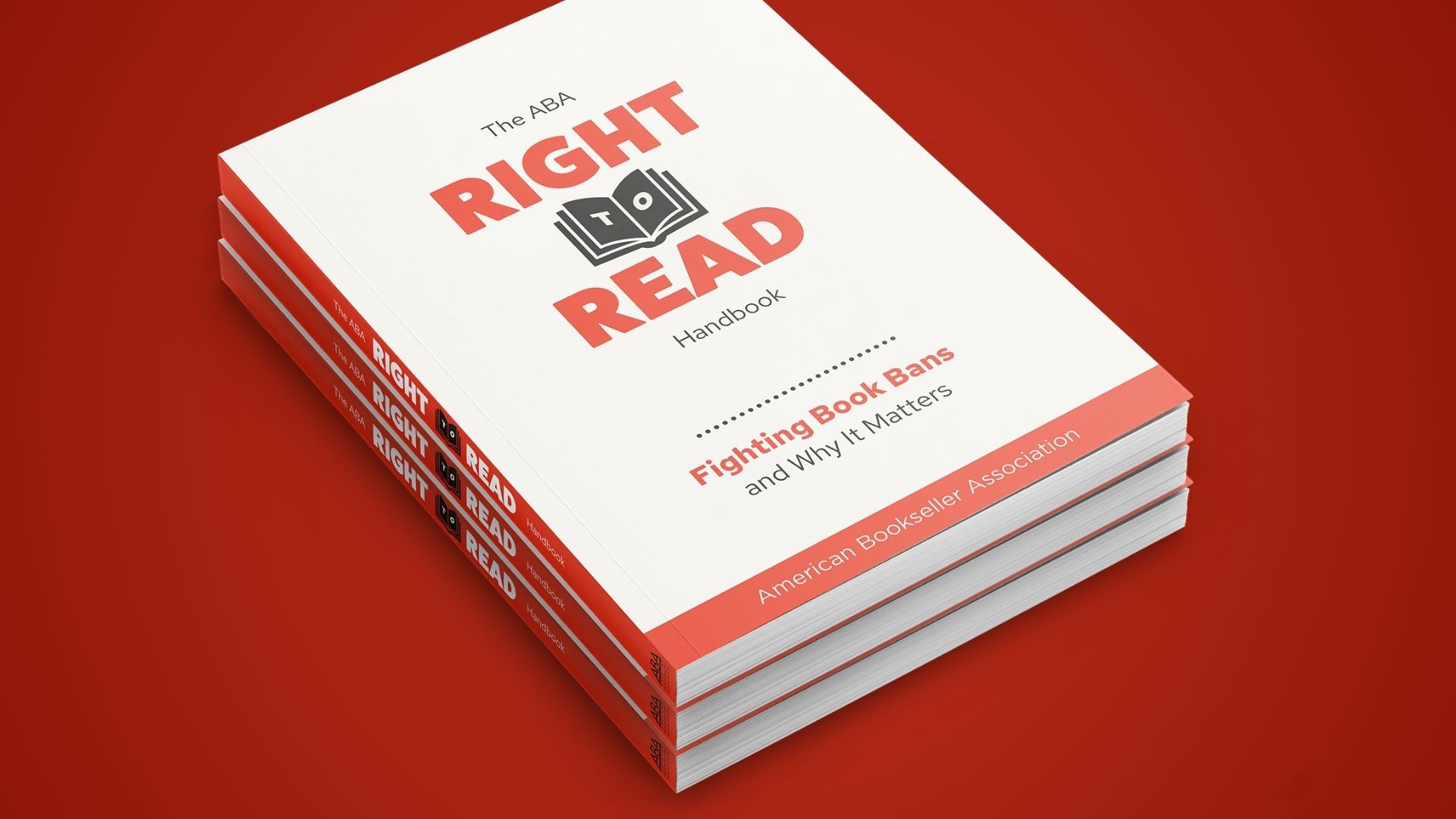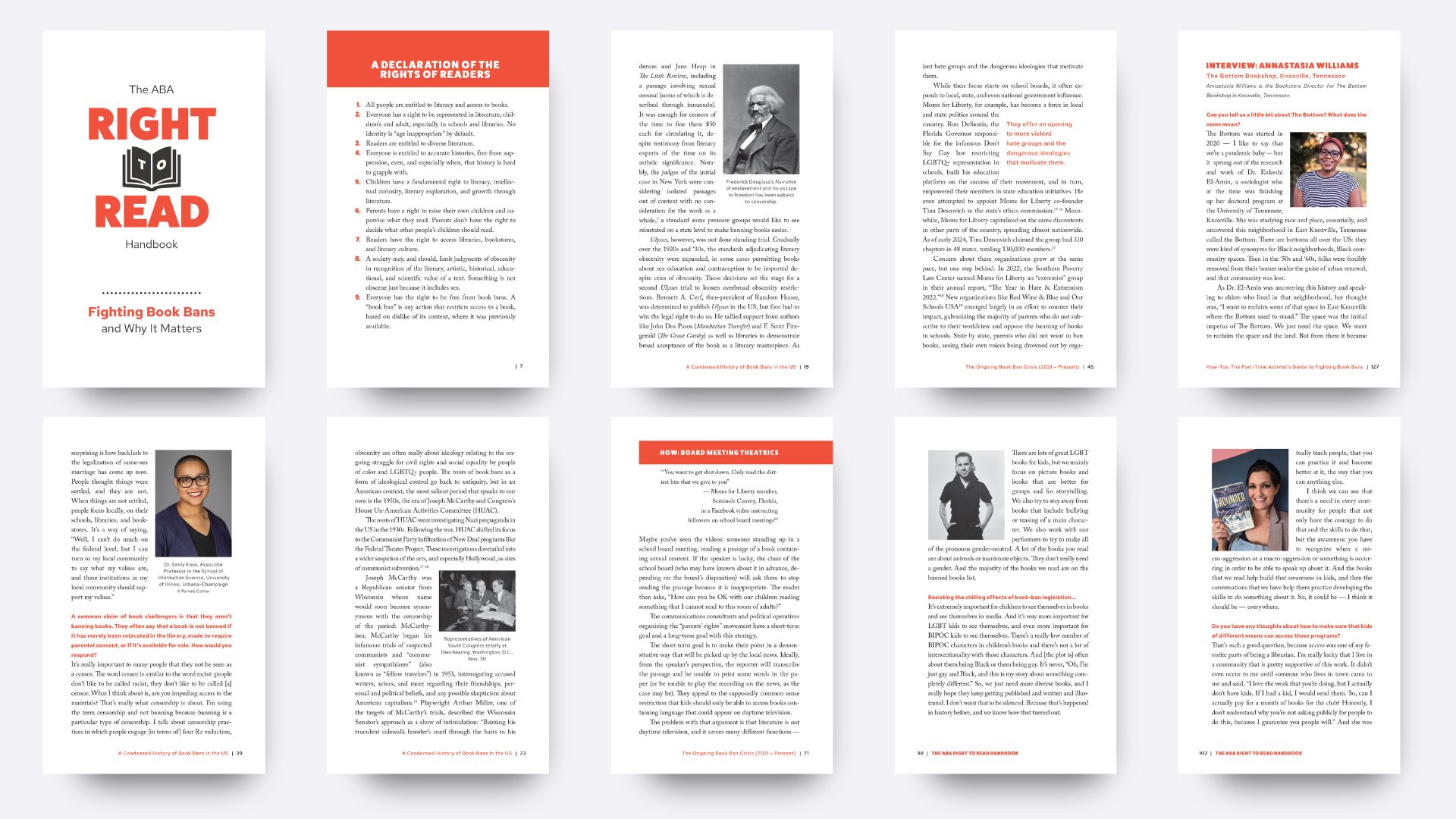
The start of back-to-school season spotlights an ever growing issue: book bans.
The American Library Association reported a 92% increase in efforts to censor books in schools and libraries in 2023, with 2,240 unique titles targeted for censorship. To combat this increasing pressure and empower community members, the American Booksellers Association created a playbook on defending the right to read in your community and beyond (because we can all play a role, even if bans aren’t happening in our area).
This handbook offers step-by-step guides for voting in a school board election, understanding a school board’s policies, contacting elected officials, and more. It features interviews with free expression advocates and state-by-state profiles of local advocacy organizations.
One of the most crucial ways to get involved is by showing up to local school board meetings and even running for a position on the board yourself. But, without the right knowledge, this might also feel daunting! That’s where the Right to Read Handbook comes in; the play-by-play information outlined within can help any and all of us tackle these horrific bans.
Read on for an excerpt from The ABA Right to Read Handbook: Fighting Book Bans and Why It Matters on attending and speaking up at school board meetings.
What is a school board?
School boards are generally composed of elected volunteers who set the budget, set and update policies, and oversee the superintendent of a school district. They may be called something other than a school board depending on the city, state, and district, and they generally have their own distinct policies.
Who can attend a school board meeting?
All community members and taxpayers have a right to attend school board meetings. You do not need to have a child in attendance at the school (or a child at all) to attend.
Find your local school district.
Google “[your address] school district.” Realty websites like StreetEasy and Zillow often list school districts. If you’re a parent and have trouble finding it, consider getting in contact with your school’s parent-teacher organization (PTO) or parent-teacher association (PTA) for advice.

Find your district’s policies and public meeting schedule.
You will often have to go to the district webpage to find this information. Boards may have specific rules governing the public comment section of the meeting, including specific time limits.
Prepare your comments.
- Make sure to stay within any allotted time constraints.
- Identify yourself. Are you a parent, a grandparent, an educator, a bookseller, a librarian, or a member of a community? Do you have a child in the school or pay taxes for the district?
- Include praise for anything that is being done well to show good faith — especially for related issues like teacher diversity, previous book challenge reviews, etc.
- Begin and end with your main request. Why are you speaking? What action do you want to be taken, and by whom? Alternately, what concern do you want to voice, and why?
- Offer evidence. Why do you believe the problem you’re identifying is a problem? If applicable, why do you believe your proposed solution is a solution?
Be respectful but firm.
Even if you are angry, you are most likely to persuade people to act if you approach them respectfully, calmly, and with evidence.
Consider attending a meeting ahead of time.
Observe any specific procedures or see how the public comment section operates.
Stories have the power to foster empathy, build community, and change lives.
At Libro.fm, we are committed to supporting everyone’s right to read. Learn more about how you can join us in the fight against book bans by visiting our Banned Books page, and make sure to grab your copy of The ABA Right to Read Handbook: Fighting Book Bans and Why It Matters.

